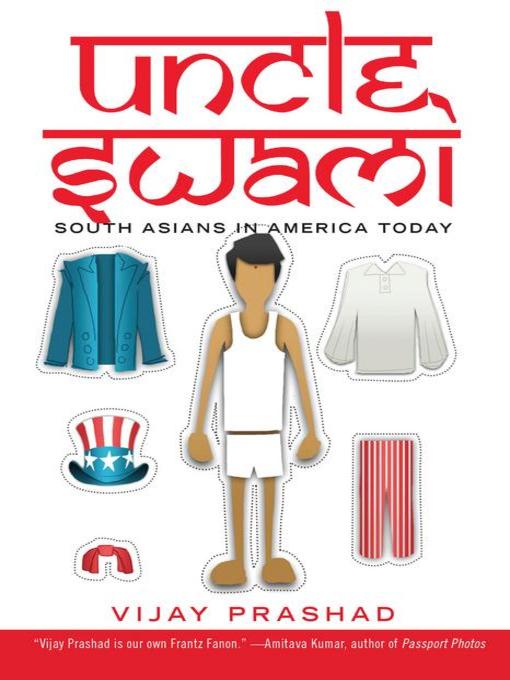
Uncle Swami
South Asians in America Today
کتاب های مرتبط
- اطلاعات
- نقد و بررسی
- دیدگاه کاربران
نقد و بررسی

January 30, 2012
As Trinity College’s South Asian history professor Prashad (The Karma of Brown Folk) writes, for South Asian–Americans, “the miasma of international relations interrupts our lives constantly.” His latest begins by illustrating the ways in which Islamophobia and hate crimes ran rife against South Asians after 9/11—tensions exacerbated by outsourced jobs and the growing unemployment rate. Random screenings on mass transit, mistaken detainment, and deportation are among the trials this population faced under legislation like the Patriot Act. To rectify the misinformation, Prashad explains how immigration policy and labor laws shaped South Asian culture, from the prolific rise of the Patels in the hotel industry to indentured servitude in post-Katrina New Orleans. In addition, he traces the rise of South Asian political activism from WWI through the 9/11 attacks that pressured South Asians to unite across disparate cultural and religious lines. Prashad impressively shows how culture and community are intrinsically tied to politics, while addressing nuances in a culture often marginalized by the media.

June 1, 2012
An update on the residual societal repercussions from 9/11 on the South Asian American population. Reverberations from 9/11 in the Sikh culture have been fully felt for more than a decade, writes Prashad (South Asian History/Trinity Coll.; Arab Spring, Libyan Winter, 2012, etc.) in this natural extension of his The Karma of Brown Folk. The author begins in the months following 9/11 as South Asian immigrants (and those even remotely resembling them) became the objects of retaliatory violence in the form of hate crimes and abject discrimination. South Asian businessmen were pulled from trans-Atlantic flights, angry street intimidation proliferated, and random detainments by police became as commonplace as the notion of racial profiling--all contributory byproducts of The Patriot Act. Though "the turban has always provoked anxiety," writes Prashad, once the shock of 9/11 subsided, what remained were concerted efforts to curb misconceptions about South Asian people, which continues to be a challenge amid a debate over an unemployment-hobbled economy and corporate outsourcing to India. Incorporating personal experiences, the author examines Indian migratory ebbs and flows, how and why South Asian American immigrants became "united by fear," and the chronological timeline of political activism that united them, regardless of affiliation. Prashad's diatribes on foreign policy and America's "imperial ambitions" may overwhelm readers seeking a generalized prognosis, but the author also includes such universally digested statements as, "Everybody dies, but not everybody lives." An eye-opening, relevant discourse on the unfortunate fallout of an American catastrophe.
COPYRIGHT(2012) Kirkus Reviews, ALL RIGHTS RESERVED.

May 1, 2012
For many, Islam has taken the place of communism as the bogeyman of the post-9/11 world, according to Prashad, South Asian history professor at Trinity College in Hartford, Connecticut. With sharp and urgent commentary, he analyzes how fundamentalists in the Christian, Jewish, and Hindi communities have become hostile to all things Muslim, using 9/11 as justification against the common enemy of Islamic terrorism threatening the U.S., Israel, and India. At the same time, Jews and Indians are viewed as model minorities in the U.S. His scholarly analysis of the current Islamophobia is laced with great quotes from scholars and activists, including Gandhi on the limits of tradition and Tolstoy on feel-good liberalism (give to the poor but don't change anything). Like Prashad's prizewinning The Darker Nations (2008), this is bound to spark discussion as he juxtaposes the platitudes of multiculturalism, which celebrate the peoples and traditions of other lands (Africa, Asia, Latin America), against the unchanging truth that non-Western continues to be viewed as subordinate.(Reprinted with permission of Booklist, copyright 2012, American Library Association.)

























دیدگاه کاربران